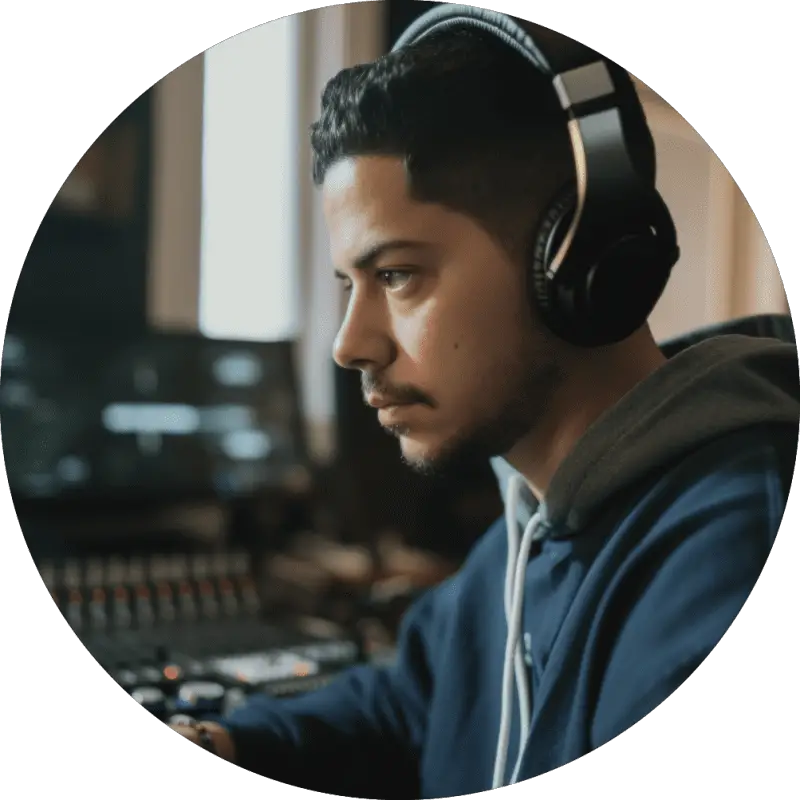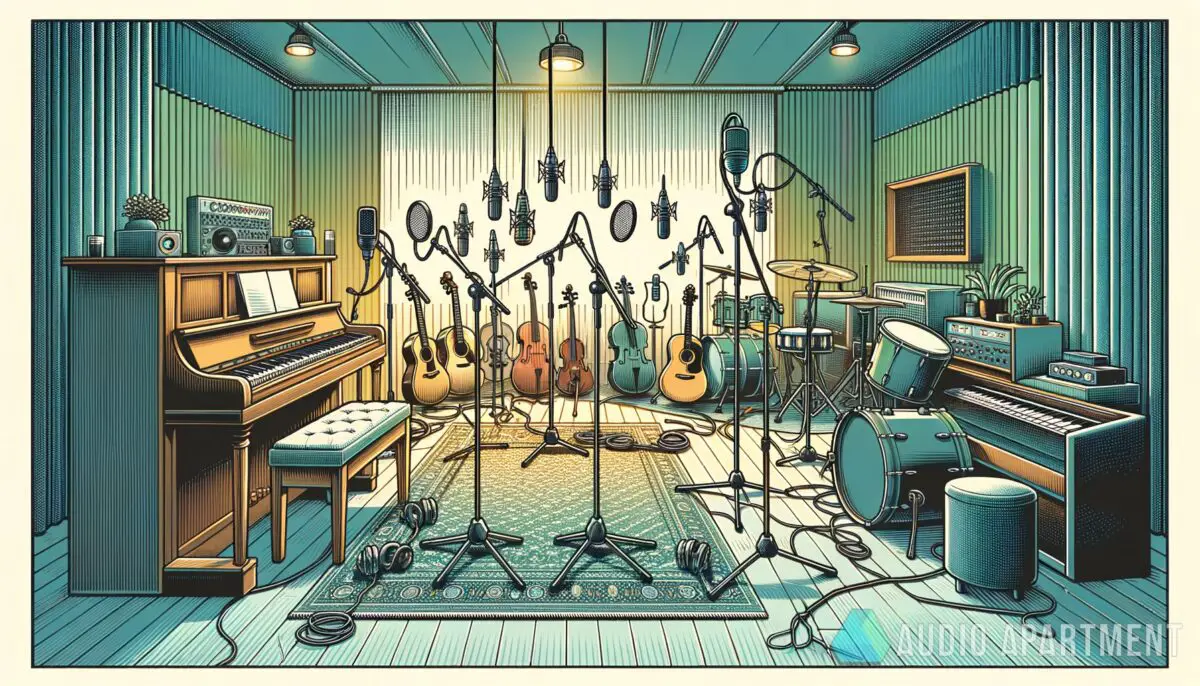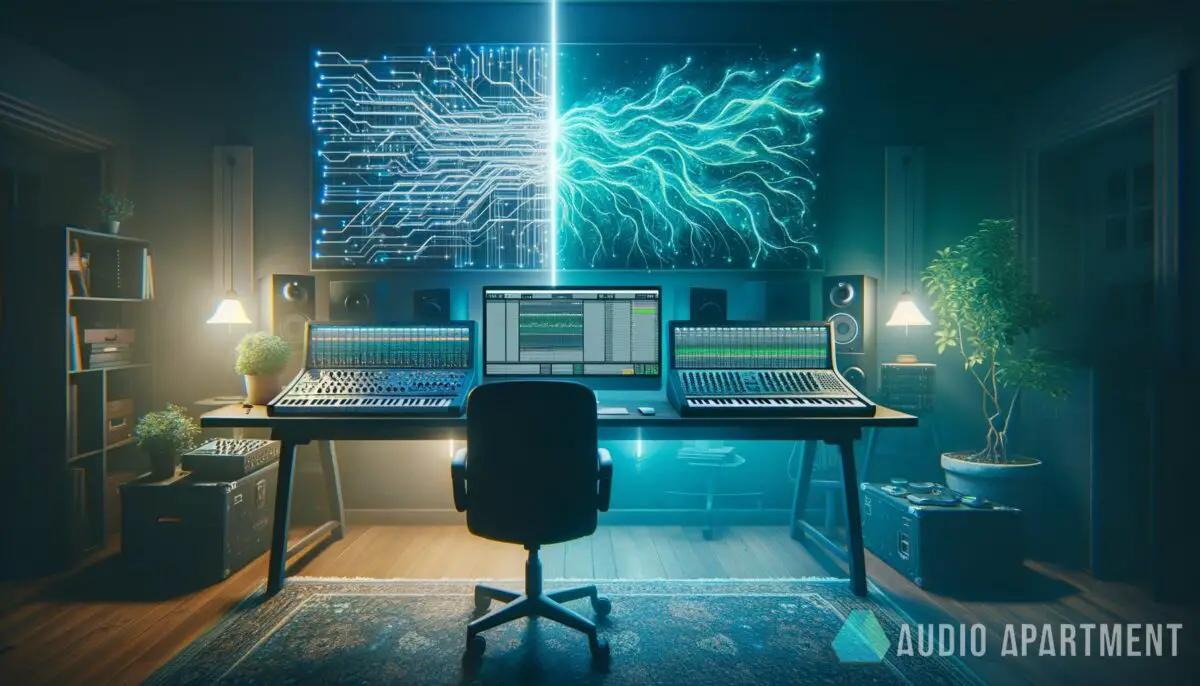Native Instruments, a music tech powerhouse born in Berlin, has revolutionized the way we make and enjoy music. Like unseen conductors, they blend innovation and creativity to shape the soundscape of modern music production. With their cutting-edge software and hardware, Native Instruments has become a trusted partner for countless artists, DJs, and sound enthusiasts worldwide. Join me as we delve into the story of this influential company, tracing its roots, growth, and its profound influence on the music industry.
What is Native Instruments? Native Instruments is a company based in Berlin that specializes in developing software and hardware products for music production, DJing, and sound design. They are known for creating innovative tools that enable musicians and producers to create, perform, and manipulate music in unique and creative ways.
How did Native Instruments establish themselves in the music industry?
Native Instruments began as a small software company in 1996. It was founded in Berlin, Germany, by Stephan Schmitt and Volker Hinz, who shared a passion for music and technology. In their early years, they focused on developing software synthesizers and effects that emulated the sound and characteristics of analog hardware.
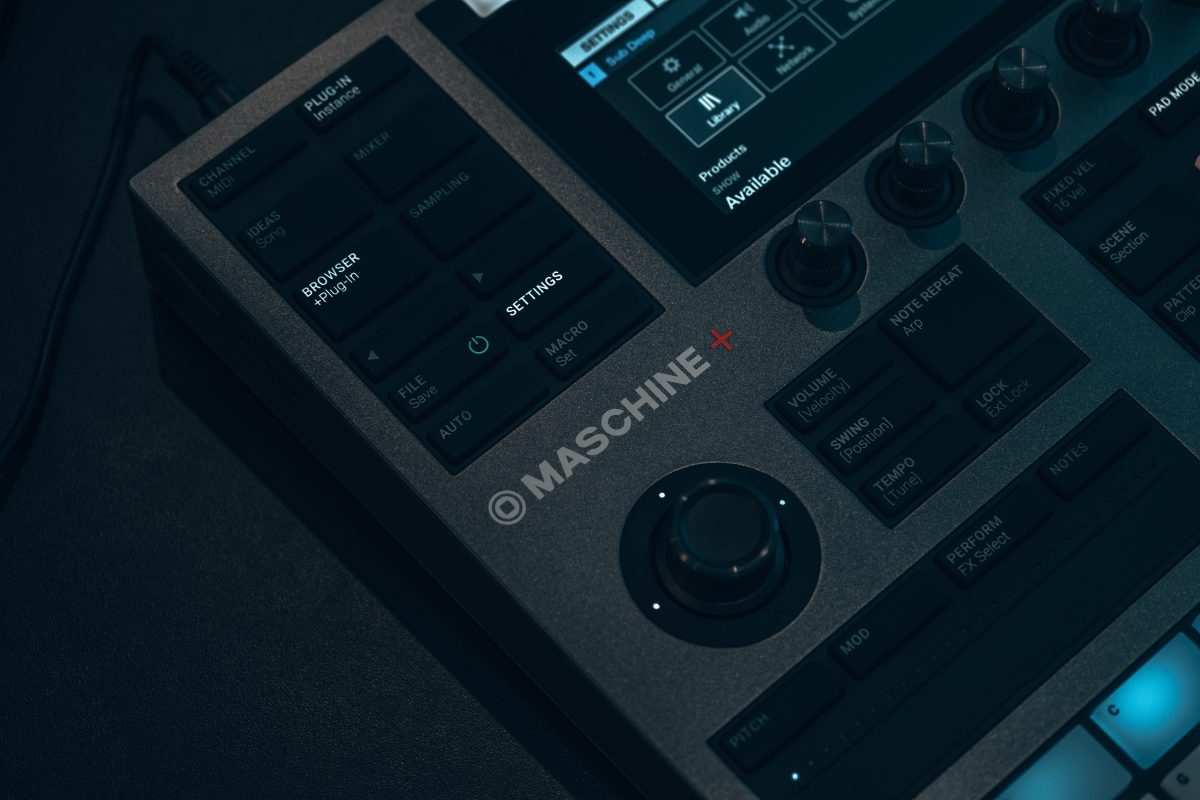
Native Instruments gained significant recognition with the release of Reaktor in 1997, a modular software synthesizer that allowed users to create their own unique sound-generating systems. This groundbreaking tool opened doors to limitless sonic experimentation, granting musicians unparalleled freedom to shape their musical vision.
Building on their success, Native Instruments continued to expand their product line with iconic releases such as Kontakt…
Building on their success, Native Instruments continued to expand their product line with iconic releases such as Kontakt, a powerful software sampler that became the industry standard, and Maschine, a hardware and software hybrid that revolutionized beat-making and live performance.
Native Instruments actively sought collaborations and partnerships with renowned artists, such as Alicia Keys and Pharrell Williams, sound designers, and hardware manufacturers. This approach allowed them to incorporate diverse perspectives and expertise into their product development process.
AKAI Professional MPK Mini MK3

AKAI Professional MPK Mini MK3
What products and services do Native Instruments offer?
When it comes to music production, Native Instruments has an impressive array of products and services to cater to every musician’s creative needs. From software instruments to hardware controllers, they offer a comprehensive toolkit that empowers artists and producers to bring their musical visions to life.
1. Software Instruments
Native Instruments is renowned for its industry-leading software instruments, which emulate various analog and digital sound sources. These instruments are meticulously crafted to provide exceptional sound quality and expressiveness, allowing musicians to sculpt their sounds precisely. Some notable software instruments include:
- Kontakt: A powerful software sampler that provides access to an extensive library of sampled instruments and sounds.
- Massive X: A flagship synthesizer that offers unparalleled sonic possibilities, ranging from rich basses to soaring leads.
- FM8: is a software synthesizer specializing in creating complex and evolving FM (Frequency Modulation) sounds.
2. Effects
Native Instruments effects plugins allow producers to shape, enhance, and precisely manipulate their sounds. These effects range from classic emulations to cutting-edge processors, providing many sonic possibilities. Notable effects plugins include:
- Guitar Rig: is a comprehensive suite of guitar and bass effects, amplifiers, and cabinets for creating authentic guitar tones.
- Reverb Classics: A collection of meticulously modeled vintage reverb units offering a variety of reverberation styles.
3. Hardware Controllers
Native Instruments combines software and hardware integration to provide a tactile and intuitive music production experience. Their hardware controllers offer hands-on control and seamless integration with their software instruments and effects. Notable hardware controllers include:
- Maschine: A hybrid music production system that combines a hardware controller with intuitive software, allowing for beat-making, sampling, and live performance.
- Komplete Kontrol: A range of keyboard controllers that provide direct access to Native Instruments’ software instruments and effects, with intelligent mapping and browsing capabilities.
4. Digital Platforms
Native Instruments has developed digital platforms that offer additional resources, services, and opportunities for musicians and producers. Notable platforms include:
- Sounds.com: A subscription-based platform that provides a vast library of high-quality samples, loops, and sound packs to inspire and enhance music production.
- Native Access: A software application that simplifies the installation, updating, and management of Native Instruments products, ensuring a seamless user experience.
Who are some notable artists or producers using Native Instruments?
When it comes to music production, Native Instruments has garnered widespread acclaim and support from top-tier artists and producers across various genres.
1. EDM and Electronic Music
- Skrillex: The Grammy-winning EDM producer has been known to use Native Instruments’ Massive synthesizer extensively to craft his iconic bass-heavy sounds.
- Flume: The Australian electronic music producer has integrated Native Instruments’ hardware controllers, such as Maschine, into his live performances, enabling him to create intricate beats and manipulate sounds on the fly.
2. Hip-Hop and R&B
- Metro Boomin: The influential hip-hop producer has employed Native Instruments’ software instruments, including Kontakt, to shape and layer his signature trap beats.
- Pharrell Williams: The multi-talented musician and producer have collaborated with Native Instruments to develop the Pharrell Williams Expansion Pack for their Maschine platform, showcasing his unique sound palette.
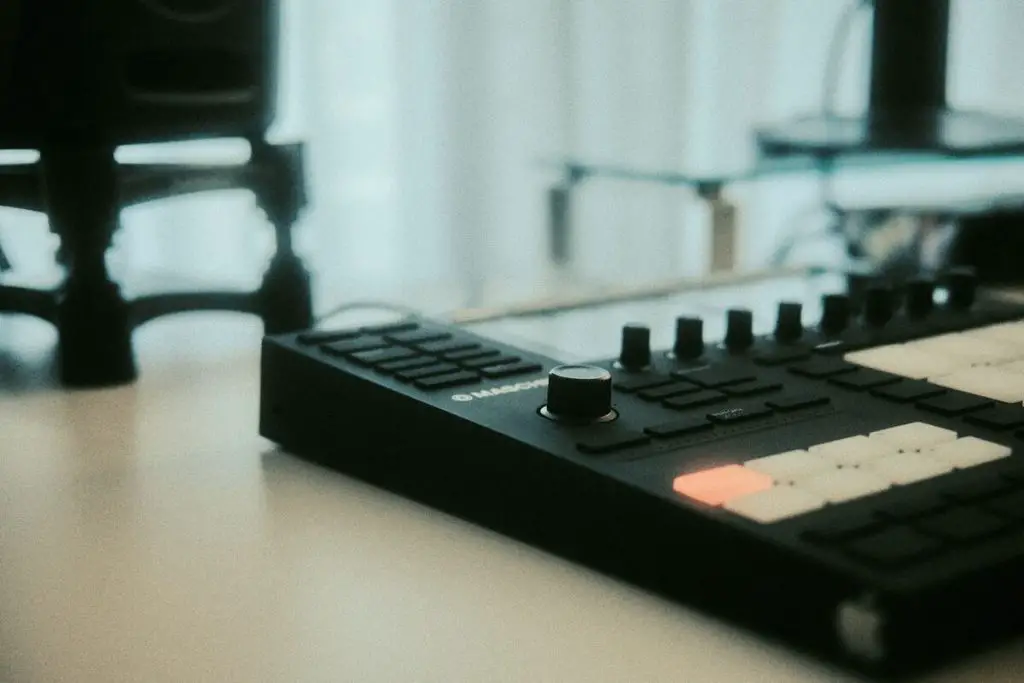
3. Pop and Mainstream Music
- Alicia Keys: The acclaimed singer-songwriter and pianist has utilized Native Instruments’ software instruments, particularly the Alicia Keys virtual piano, to capture the warmth and expressiveness of her grand piano performances.
- Diplo: The Grammy-winning producer and DJ have integrated Native Instruments Traktor DJ software and hardware controllers into his live sets, enabling him to seamlessly mix and manipulate tracks with precision.
4. Film Scoring and Sound Design
- Hans Zimmer: The legendary film composer has incorporated Native Instruments’ software instruments, such as Kontakt and Reaktor, in his immersive and cinematic soundtracks, harnessing their sonic capabilities for evocative textures and powerful orchestral elements.
- Junkie XL (Tom Holkenborg): The acclaimed composer and producer has used Native Instruments’ products extensively, combining their software instruments with his analog synthesizers to create dynamic and textured soundscapes for films like “Mad Max: Fury Road” and “Deadpool.”
Advantages and disadvantages
In this section, we will explore the advantages and disadvantages of Native Instruments, helping you make informed decisions and maximize your music production experience.
Advantages
With Native Instruments products at your fingertips, you can access a vast array of sounds, instruments, and effects that can significantly enhance your creative process. Here are some advantages of using Native Instruments:
- Unparalleled Sound Quality: Native Instruments’ software instruments and effects are renowned for their exceptional sound quality, capturing the nuances of analog gear while offering innovative digital capabilities.
- Extensive Sound Libraries: Native Instruments provides a vast selection of sample libraries, allowing you to explore various genres and styles and find inspiration for your compositions.
- Seamless Integration: Native Instruments software and hardware solutions are designed to work together seamlessly, providing a cohesive and efficient workflow.
Disadvantages
While Native Instruments offers a wealth of creative possibilities, there are a few considerations to keep in mind:
- Cost: Native Instruments’ products can be relatively expensive compared to some other software options. While they often provide excellent value for the quality they offer, the initial investment may be a barrier for budget-conscious users.
- System Requirements: Some of Native Instruments’ more demanding instruments and effects may require powerful computer hardware to run smoothly. This can be a disadvantage for users with older or less capable systems, as they may experience performance issues or have to upgrade their equipment.
- Steep Learning Curve: Native Instruments’ software instruments and effects can be complex and feature-rich, which may result in a steep learning curve for beginners or those unfamiliar with music production. Mastering all the features and capabilities of their products may require time and effort.
If you want even more tips and insights, watch this video called “Celebrating 25 Years of Native Instruments | Native Instruments” from the Native Instruments YouTube channel.
Frequently asked questions (FAQ)
Do you still have questions about Native Instruments? Below are some of the most commonly asked questions.
Can I use Native Instruments’ products with other DAW software?
Yes, Native Instruments’ products are designed to be compatible with a variety of digital audio workstation (DAW) software. While they have their own software called “Native Instruments’ Maschine,” their virtual instruments, effects, and hardware controllers can typically be used as plugins or standalone applications within popular DAWs like Ableton Live, Logic Pro, and FL Studio, among others.
Are Native Instruments’ products suitable for beginners?
Absolutely! Native Instruments offers user-friendly interfaces and resources to support beginners in their music production journey. They have intuitive software interfaces that make it easy to dive in and start creating. They also offer a range of entry-level products that cater to different skill levels.
Is Native Instruments compatible with both Mac and Windows?
Yes, Native Instruments products are compatible with both Mac and Windows operating systems. Whether you’re using a Mac computer or a Windows PC, you can enjoy Native Instruments’ software and hardware products without any compatibility issues. They provide installers and drivers for both platforms, ensuring a seamless experience for users on either operating system.
Conclusion
And there you have it, folks! We’ve journeyed through the captivating world of Native Instruments, where innovation harmonizes with creativity. Did I cover everything you wanted to know? Let me know in the comments section below. I read and reply to every comment.
If you found this article helpful, be sure to share it with a friend. And don’t forget to check out my full blog for more tips, tricks, and insights on music production and beyond. Thanks for reading, and may your musical journey be filled with harmony, rhythm, and endless inspiration.
Key Takeaways
This article covered the topic of Native Instruments and their significance in the music industry. Here are some key takeaways:
- Native Instruments offers a diverse range of software instruments, effects, hardware controllers, and digital platforms for music production.
- Notable artists and producers of various genres have embraced Native Instruments’ products, showcasing their quality and versatility.
- Advantages include enhanced creativity, versatility, and seamless integration, while considerations include a learning curve and initial investment.

